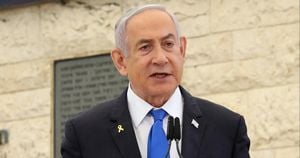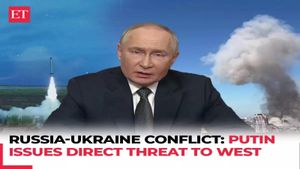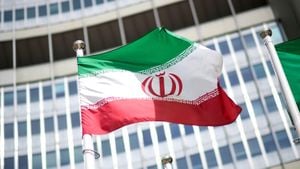The race to succeed Chris Patten as chancellor of the University of Oxford has attracted considerable attention, not merely because of the weight of the title but also due to the eclectic mix of candidates stepping forward. With 38 individuals vying for the role, which is largely ceremonial yet steeped in the university's nearly 800-year history, this election is shaping up to be anything but ordinary.
Among the numerous candidates, some stand out for their unique backgrounds and approaches. One contender, presenting himself as the "anti-woke candidate," is Reverend Stephen Cottrell, who looks to champion traditional values within the university’s increasingly progressive environment. Meanwhile, another participant, who prefers to remain anonymous but identifies as a Zumba instructor, argues her passion for fitness and her lively spirit would translate well to the demands of chancellor. Her whimsical approach to the campaign adds to the diverse atmosphere surrounding this election.
Then there's Peter Mandelson, the former Labour politician, who has been criticized for attempting to leverage his political connections to bolster his bid for the position. Supported by undergraduates aligned with the Labour Club, Mandelson’s campaign has sparked debates about the appropriateness of seeking student assistance for this honorary role. Although students are not eligible to vote, they have been actively trying to rally support among the eligible alumni and faculty members, effectively turning their campaign efforts toward securing Mandelson's place.
"We’ve moved from the old-school approach of a tap on the shoulder to a far more open process," said Jonathan Black, the director of the university's career services. This change reflects the university's adaptation to modern times and the distinctive challenges it faces. Voters will now cast their ballots online, broadening participation significantly. This year, around 26,000 alumni and 5,000 faculty members are registered to vote, contrasting greatly with the 8,000 votes cast during the last election held for the chancellor's role back in 2003.
Despite the various descriptors applied to the candidates, the significance of the chancellor’s role cannot be understated. Originally seen as the university's ceremonial representative, the chancellor influences the institution’s relationship with the external world, advocating for Oxford’s interests among national and international stakeholders. Following the tenure of Chris Patten, who held the position for over two decades and played pivotal roles such as the last colonial governor of Hong Kong, the new chancellor will inevitably face heightened expectations.
Alumni have begun to express their opinions about the potential candidates. On one hand, some champion the need for traditional representation and stability. Conversely, others are advocating for fresh perspectives, urging the electoral body to select someone who can effectively engage with contemporary issues facing students and staff alike. It begs the question: How should the university balance its historic legacy with the demand for modernity and inclusivity?
Concerns about political ties and tribal loyalties particularly surround Mandelson's candidacy. Some university dons voiced their discomfort with current students actively campaigning on his behalf, arguing the chancellor should maintain independence from party politics. One academic told the press, "At a university of all places, Lord Mandelson should be promoting his cause by the strength of his reasons, not by appealing to tribal loyalties." Those sentiments reflect fears of politicizing the chancellorship, which ought to embody the integrity of the entire university.
The election's first round will winnow the field down to five candidates, followed by the final vote slated for late November. With such broad interest and the potential for unexpected developments, one cannot help but feel intrigued by the upcoming months leading us to the eventual outcome. By opening up the process and allowing for online voting, the university has ushered transparency and engagement, allowing graduates from all walks of life to influence the future of their alma mater.
What remains to be seen is how the presence of such diverse candidates reflects not only the current student body’s sentiments but also the globalized perspective of the university’s alumni. How will this new wave of engagement and discourse shape the direction of one of the world's most distinguished academic institutions? The eyes of the academic community and beyond will surely be on Oxford as the race develops.
Among the already vibrant discussions and varied opinions, the upcoming chancellor election serves as not just another facet of university governance but also as a reflector of the broader societal trends influencing higher education today. Candidates from different walks of life stepping up to apply for the position raises exciting possibilities about the future of leadership within the university and could very well determine the tone for its next chapter.



